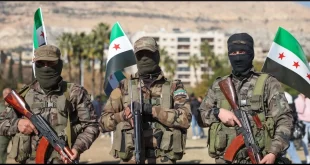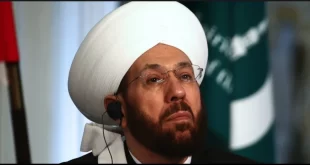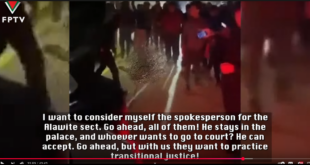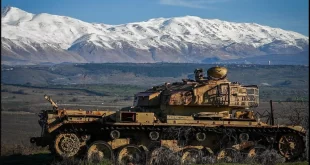from the News Desk at The Cradle, February 27, 2025
Israeli Defense Minister Israel Katz said on 27 February that Tel Aviv is planning to keep its occupation forces in southern Lebanon and Syria “indefinitely.”
“There is a buffer zone [on the border with Lebanon]. It wasn’t easy, but I stood my ground, and we received a green light from the United States; we gave them a map, and we are staying indefinitely. This is situation-dependent, not time-dependent,” the defense minister said during a news conference, according to a statement from his office.
The defense minister also vowed that Israeli forces would remain in Syria as well.
“Israeli policy is to remain there, on the summit of Mount Hermon and in the dominant positions, indefinitely,” he said, reiterating Tel Aviv’s call for “demilitarization.” Katz said two days earlier that Israel will “not allow southern Syria to become southern Lebanon.”
The Israeli army was meant to withdraw entirely from southern Lebanon on 18 February but has maintained an occupation in five key locations inside the country near the border.
Israeli forces continue to occupy Labbouneh, Mount Blat, Owayda Hill, Aaziyyeh, and Hammamis Hill.
Tel Aviv has violated the ceasefire agreement over 1,300 times with non-stop attacks and infiltration of Lebanon’s airspace since the deal was signed in November 2024. An Israeli drone strike on eastern Lebanon’s Hermel killed at least one and injured at least one other on Thursday afternoon.
Israeli strikes on eastern Lebanon have killed at least four people since Tuesday night.
Tel Aviv claims to be acting on its rights within the deal by preventing Hezbollah from rearming itself. However, the agreement signed by Beirut does not include anything about Israeli forces having the right to attack the country, instead stipulating that the resistance’s presence and military infrastructure must be dismantled by the Lebanese army south of the Litani River in south Lebanon.
Israel accuses Hezbollah of having not fully withdrawn to the north of the Litani River, as per the agreement. It also accuses the Lebanese resistance of trying to reconstitute its forces.
Avi Ashkenazi, author for Hebrew daily Maariv, wrote earlier this month that keeping a buffer zone in south Lebanon will be a “mistake” that will result in future casualties.
Meanwhile, in Syria, Israeli jets have been repeatedly launching violent airstrikes targeting military infrastructure belonging to the former Syrian state, and troops have established a widespread occupation across the country’s south – overlooking the capital, Damascus.
Tel Aviv has announced that it will not allow any armed presence in the south of the country – prompting protests from local tribes and residents who have condemned the Israeli interference in Syrian affairs and violation of the country’s sovereignty.
 Syria Support Movement solidarity with the Syrian people
Syria Support Movement solidarity with the Syrian people




